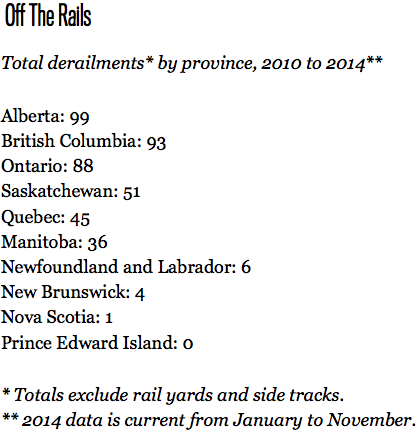Repost from CBS News
[Editor: Apologies for the commercial ad in the otherwise excellent video. – RS]
Kansas derailment raises vital rail safety questions
January 3, 2015
Rail safety is back in the spotlight after a new warning from federal regulators.
The National Transportation Safety Board is urging railroads to take immediate action following its investigation of a derailment in Kansas. No one was hurt in the derailment, but it raised new questions about whether America’s rail network — carrying cargo and passengers — is as safe as it could be, CBS News’ Mark Albert reports.
The collision in September between two Union Pacific freight trains in Galva, Kansas, may have come down, in part, to a light bulb.
In a news release Friday, the NTSB said a green LED light was so bright it out-shined the old-fashioned, incandescent red stoplight nearby. The engineer accelerated, plowing into an oncoming train.
The NTSB now wants all railroads to eliminate any lighting hazards nationwide. It’s the latest in a string of safety issues in the past 18 months on America’s 140,000 miles of rails.
“What we know is the regulators are behind the curve,” said former NTSB chair Deborah Hersman, who sounded the alarm about crude oil shipments in April. “We’re losing cars. We’re losing millions of gallons of petroleum, and we aren’t prepared.”
Eight days later, train cars carrying crude oil derailed and caught fire along the James River in Virginia.
In December 2013, a derailment in North Dakota caused a huge fireball. And in July 2013, 47 people died after a derailment in Quebec, Canada. The train was carrying oil from North Dakota’s booming Bakken oil region.
McClatchy correspondent Curtis Tate acknowledges that the government and the railroads are making strides to make rail travel safer.
“Absolutely, they are,” he said. “The problem is it was too late for 47 people in Quebec.”
Tate published an investigation this week that found gaps in rail oversight, including:
The government lets railroads do their own bridge inspections.
There is no federal database on those bridge conditions, like there is with roads.
New rules that make railroads tell states when large oil shipments pass through only apply to higher-risk Bakken crude — not other types of oil.
“I’d like to think that they’re doing the best they can,” Tate said. “But the question is, will that be enough?”
In a statement to CBS News, the Association of American Railroads said the industry spends half a billion dollars per week on safety.
The Department of Transportation is expected to issue new federal rules by spring that may include stronger tank cars, tighter speed restrictions and tougher braking requirements.












You must be logged in to post a comment.